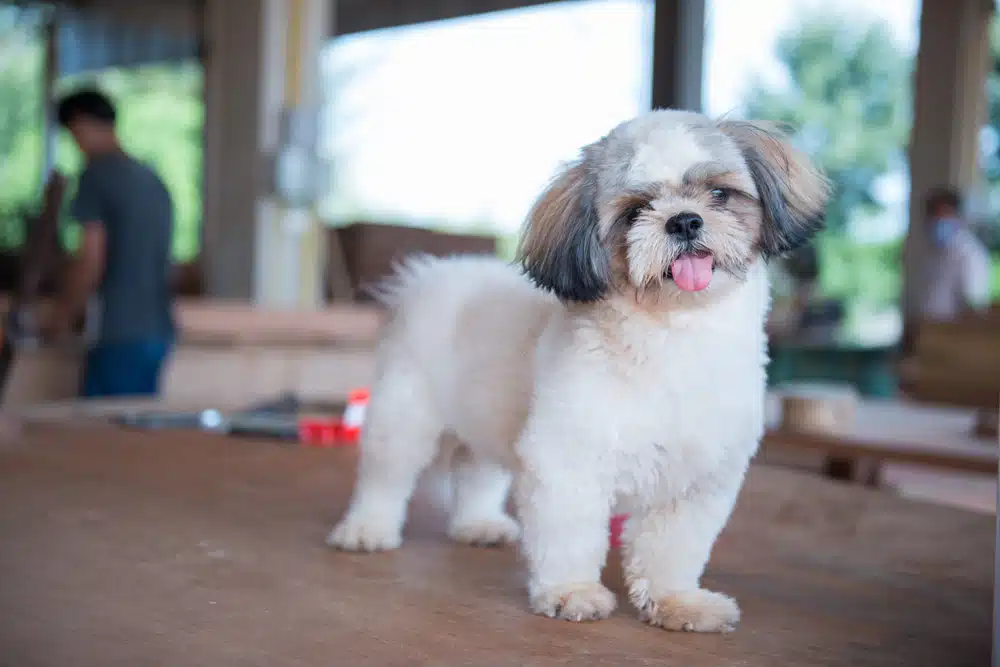Brachycephalic pets are known for their unique characteristics—flat muzzles, large heads, irresistible wrinkles, and prominent eyes—but these features come with equally unique health and care needs. Learn how to provide a well-rounded life for your flat-faced pet with these tips from the team at the Animal Hospital of Parkland.
#1: Visit the veterinarian for a complete physical examination
Brachycephalic breeds (e.g., Boston terriers, boxers, English and French bulldogs, pugs, shih-tzus, Pekingese, Persian cats, and any mixed breed that shares such ancestry) are prone to respiratory abnormalities that can complicate breathing. These structural problems are collectively called brachycephalic obstructive airway syndrome (BOAS), and can significantly affect your flat-faced pet’s quality of life. These include:
- Narrow nostrils (i.e., stenotic nares)
- Elongated soft palate
- Weak tracheal cartilage
- Everted laryngeal tissue
Your veterinarian will evaluate your pet’s structure and respiratory function to determine if they suffer from BOAS. In some instances, you may notice signs at home, such as:
- Snoring or snorting
- Noisy breathing, especially during inhalation
- Frequent reverse sneezing
- Exercise intolerance
- Blue or purple gums (i.e., cyanosis)
- Weakness or collapse
Fortunately, help is available for pets with BOAS. Depending on your pet’s abnormality location and severity, surgical correction or conservative management (e.g., medication, weight loss, lifestyle changes) may be recommended.
#2: Keep your brachycephalic pet lean
Flat-faced breeds may be too cute for their own good—which is reflected in their expanding waistlines. Extra weight can put unnecessary stress and strain on their lungs, heart, and joints, making breathing, exercising, and enjoying life more difficult. Obesity can also worsen orthopedic conditions, such as hip and elbow dysplasia, which are common in many chondrodystrophic (i.e., long bodied, short-legged) breeds.
If you cannot feel your pet’s ribs or see a waistline, talk to your Animal Hospital of Parkland veterinarian about their diet.
#3: Keep your brachycephalic pet cool
The brachycephalic pet’s short muzzle, narrow airway, and various respiratory challenges make them prone to hyperthermia or heat stroke, emergency conditions where the pet cannot regulate their body temperature, and can be life-threatening.
Brachycephalic pets can experience heat stroke on even mild days (e.g., 70 degrees fahrenheit) or when overexcited. Owners should be vigilant about their pet’s comfort and safety, and move them to a cool location if they see early signs, including excessive panting or drooling, fatigue, and restlessness. Because heat stroke can happen in minutes, brachycephalic pet owners should restrict their pet’s outdoor time during warm or hot weather, always ensure the pet has access to cool, fresh water, and never leave the pet in a parked car.
#4: Care for your brachycephalic pet’s skin
Many brachycephalic breeds have skin folds and wrinkles that can trap moisture, leading to irritation and infection from yeast and bacteria. Additionally, they frequently experience environmental allergies that cause excessive licking, chewing, and scratching.
Maintain your pet’s skin health by cleansing hard-to-reach places, including wrinkles, feet, and the hind end. Keep your pet on a regular bathing and grooming schedule to remove debris from the skin and coat and prevent painful matting, which prevents healthy airflow to the skin.
#5: Support your pet’s oral hygiene
Brachycephalic pets have the same number of teeth as mesocephalic (i.e., normal muzzle length) pets, but their short muzzle and unusual jaw shape cause overcrowding and misalignment and create additional space for plaque and tartar accumulation and trapped hair and debris. Once bacteria get below the gum line, dental disease is painful and debilitating.
At-home care techniques, such as toothbrushing at least three times per week, dental diets, and water additives, can help reduce plaque and tartar accumulation. However, accessing a brachycephalic pet’s teeth with a brush can be difficult, so yearly dental health examinations and routine dental X-rays and cleanings under anesthesia are critical for effective dental care in brachycephalic pets. Tooth extraction is often necessary to reduce crowding and preserve the most important teeth.
#6: Use a harness to walk your brachycephalic pet
Brachycephalic pets are generally excitable and eager, and more likely to pull and overexert themselves on a walk. When the pet pulls, collars can create additional stress on their airway, worsening their BOAS signs, and contributing to a dangerous condition known as collapsing trachea. Unless your brachycephalic pet walks politely on a leash, a well-fitted body harness is the safest way to manage their enthusiastic pulling without risking their health.
#7: Look for products designed for brachycephalic pets

Dog supplies aren’t one size fits all—especially with face shapes. Brachycephalic pets may become frustrated with toys or tools that their lack of a prominent muzzle prevents them from grasping or moving.
Fortunately, with the ever-increasing popularity of brachycephalic pets, new products are available to meet their special needs. Our favorites include:
- Fluff Trough® — This pug-owner designed elevated feeder makes accessing their food easier for small flat-faced pets. Rather than putting their face in a high-sided bowl, pets can step up to the open, elevated Fluff Trough for a more ergonomic eating or drinking experience.
- Breed-specific kibble — Royal Canin breed-specific nutrition features specially designed kibble for safe, enjoyable grasping and chewing.
- Puzzle toys for flat-faced dogs — Look for treat-dispensing balls and puzzles with taller levers and longer pulleys. Lickable treat mats are a great alternative to Kongs and similar shaped toys.
Help your flat-faced furry friend live a well-rounded life by paying close attention to their special needs. Although some consider these breeds high maintenance, we think you’ll agree that life with a brachycephalic pet is a labor of love.
For more information about brachycephalic pet health, or to schedule your pet’s BOAS evaluation, contact the Animal Hospital of Parkland.

